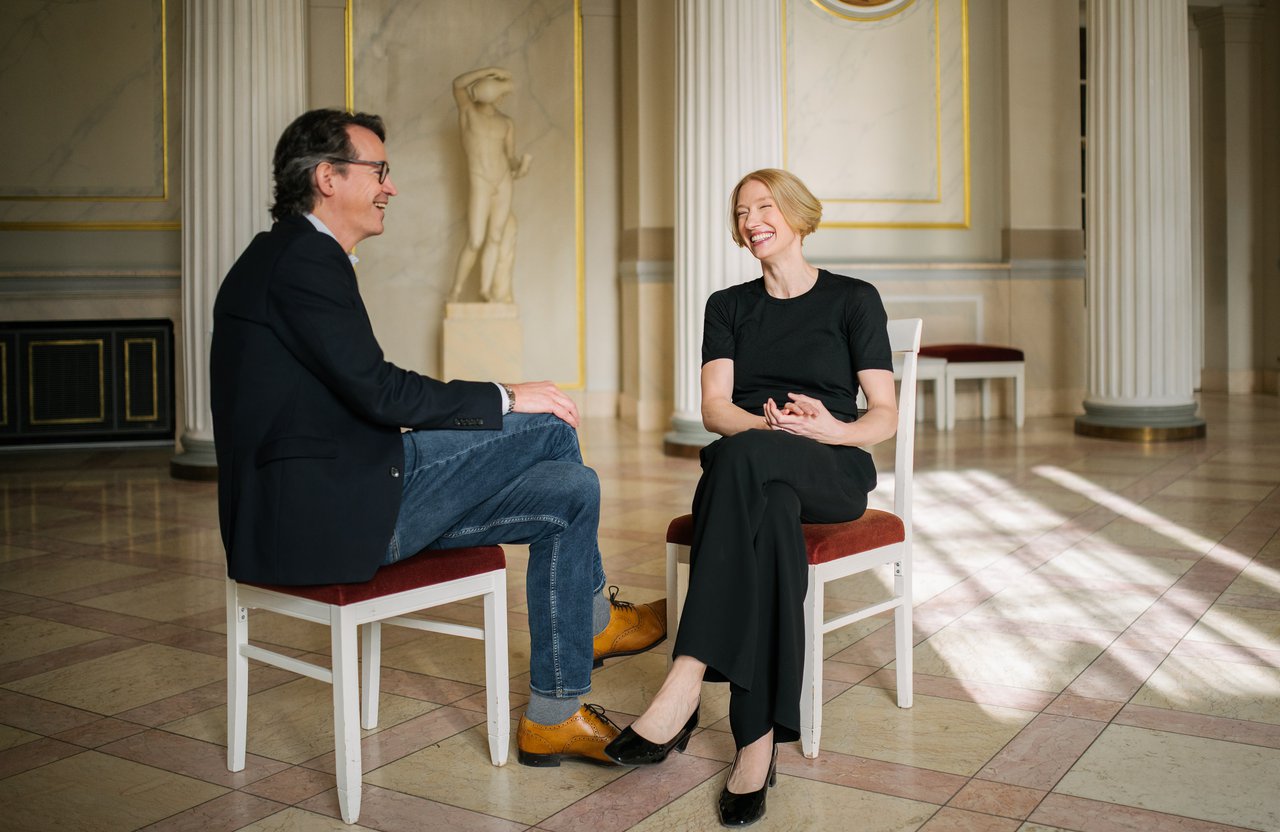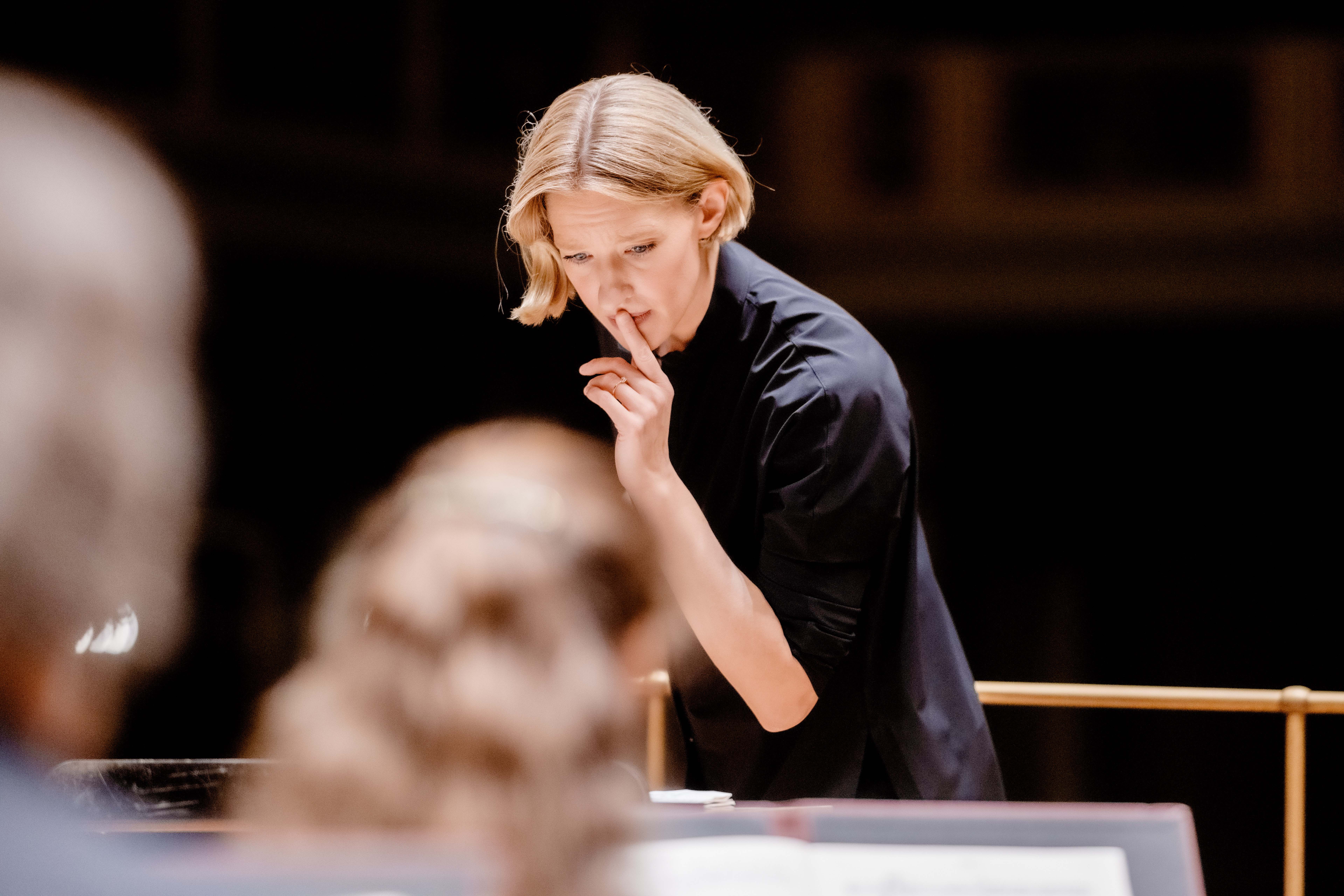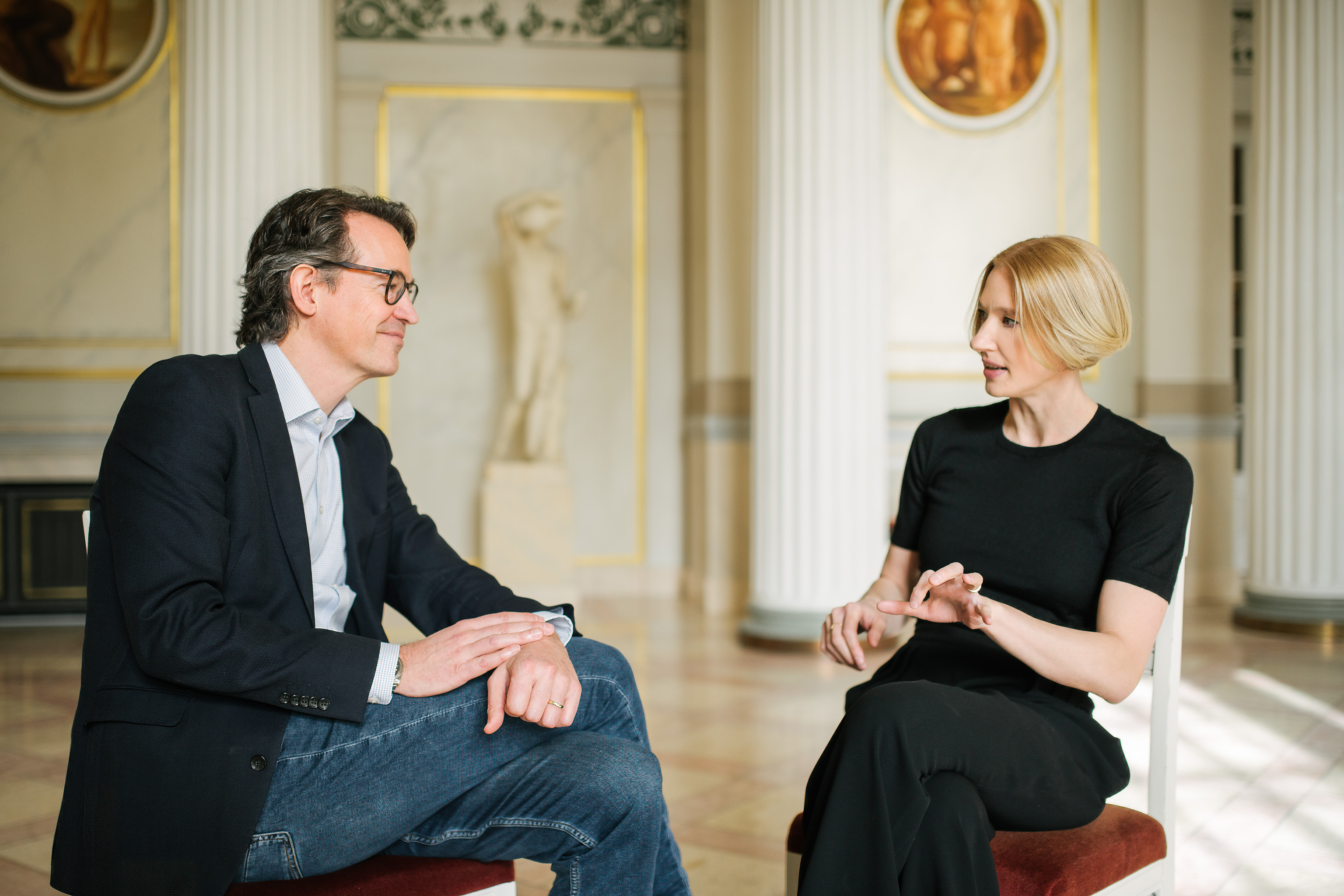13.00 Uhr
Führung durch das Konzerthaus Berlin
 Joana Mallwitz und Sebastian Nordmann im Gespräch © Simon Pauly
Joana Mallwitz und Sebastian Nordmann im Gespräch © Simon Pauly
Chief conductor Joana Mallwitz in an interview with general director Sebastian Nordmann
JM: Since our first day, there has been a feeling of beautiful naturalness while working together. Then there was the incredibly beautiful opening concert, which will remain in my heart forever. And as a kind of antithesis, our Weill recording days, which I think were just as intense and beautiful for everyone. It's a completely different way of working together than in a concert - seven hours a day with such precision and yet with great dedication at all times. Everyone excelled, it really brought us together.
JM: Fantastic. I received such a warm welcome from everyone - the house, the orchestra and the audience. I'm very lucky right now that I not only feel personally at home in Berlin, but also that I have a real artistic home. We are supported by an enormous curiosity in the audience. I already experience this in the introductions, when everyone really laughs and concentrates, and even more so in the concerts. It's an incredible feeling. I love this warm-hearted, enthusiastic Berlin audience!
JM: On the podium in the Great Hall! But when I'm in Berlin and not conducting, I love sitting in my office almost every day. I study the scores in the place where I later conduct them and always have my finger on the pulse of the music: my office is only half a flight of stairs away from the stage. I get to hear what the orchestra is rehearsing, what the hall sounds like at the moment and I let the concert hall air inspire me.

JM: We can't pretend that we don't have a stage here. A stage is always political: what do you play or say on a stage, who do you allow to be on it? But there is a component to concerts that remains apolitical: People come together to listen. It is very important to me that the concert business ultimately has a unifying effect and strengthens the center of society. That doesn't mean that we are resting on our laurels. We want to create the opportunity for everyone to be a part of it at any time and invite everyone to join us.
JM: When I got to know her music, I was so enthusiastic that I simply had to listen to everything she wrote. I'm fascinated by the fact that Lera Auerbach can write for large symphony orchestras and use the full potential of such a large apparatus with a new language. That is a talent all of its own. We also got to know each other personally in direct discussions about her scores. It was only then that I realized the many other aspects that she brings with her: She composes and makes music, writes, paints, creates sculptures and deals with a wide range of topics. Everything she deals with becomes art with Lera.

JM: For me, music is never absolute. I always need an emotional anchor where a piece grabs me. And even in all my analysis processes, it has to form an emotional map for me in the end. I believe that the great composers can touch us emotionally through their musical language alone, regardless of what they may have wanted to describe with their music. We feel that what we are addressing has something to do with us.
JM: Not yet, but I'm really looking forward to it. When Sheku Kanneh-Mason plays, he has this immediacy, this unfiltered way that a person suddenly opens up on stage and draws everyone in. I really love this way of making music.
JM: It adds a particularly festive element due to its familiarity and elegance. Apart from that, it goes very well with John Adams' "The Chairman Dances" and Rachmaninov's Symphonic Dances: We have three composers from three eras who went to America and dealt with issues of exile, flight and home. While abroad, they incorporated musical elements from their homeland into their works. This results in a very dance-like programme, perfect for the opening.

JM: There will definitely be a Haydn focus again on our way to the "Creation", Mozart, as well as French, Italian, Russian and major German repertoire - we have to constantly develop the core repertoire and I will also conduct very new works. I'm also very much looking forward to conducting Schubert's "Great" in C major in front of an audience rather than in front of cameras and an empty hall, as I did in 2020 when I made my debut with the Konzerthausorchester due to the coronavirus. I think it's one of the best pieces ever, and I've been asked several times when it's coming. And like every season, I do a Mahler symphony with the orchestra, which is part of my job as chief conductor.
JM: That's not so easy to answer, because I've never experimented as much as I have here. After the first two "Night Sessions", I'm definitely super happy, because people have noticed that we can leave limits set by regular symphony concerts even further behind. We always start with a theme. In addition, we have a guest artist and we have room to play unusual, rarely performed and contemporary pieces.
JM: I don't want to give too much away yet, but we're trying to include top athletes and film actors intothe the next episodes of the „Night Sessions“.